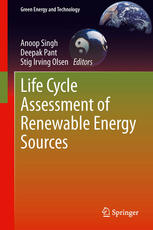

Most ebook files are in PDF format, so you can easily read them using various software such as Foxit Reader or directly on the Google Chrome browser.
Some ebook files are released by publishers in other formats such as .awz, .mobi, .epub, .fb2, etc. You may need to install specific software to read these formats on mobile/PC, such as Calibre.
Please read the tutorial at this link: https://ebookbell.com/faq
We offer FREE conversion to the popular formats you request; however, this may take some time. Therefore, right after payment, please email us, and we will try to provide the service as quickly as possible.
For some exceptional file formats or broken links (if any), please refrain from opening any disputes. Instead, email us first, and we will try to assist within a maximum of 6 hours.
EbookBell Team

4.7
96 reviewsGovernments are setting challenging targets to increase the production of energy and transport fuel from sustainable sources. The emphasis is increasingly on renewable sources including wind, solar, geothermal, biomass based biofuel, photovoltaics or energy recovery from waste. What are the environmental consequences of adopting these other sources? How do these various sources compare to each other?
Life Cycle Assessment of Renewable Energy Sources tries to answer these questions based on the universally adopted method of Life Cycle Assessment (LCA). This book introduces the concept and importance of LCA in the framework of renewable energy sources and discusses the key issues in conducting their LCA. This is followed by an in-depth discussion of LCA for some of the most common bioenergy sources such as agricultural production systems for biogas and bioethanol, biogas from grass, biodiesel from palm oil, biodiesel from used cooking oil and animal fat, Jatropha biodiesel, lignocellulosic bioethanol, ethanol from cassava and sugarcane molasses, residential photovoltaic systems, wind energy, microalgal biodiesel, biohydrogen and biomethane. Through real examples, the versatility of LCA is well emphasized.
Written by experts all over the globe, the book is a cornucopia of information on LCA of bioenergy systems and provides a platform for stimulation of new ideas and thoughts. The book is targeted at practitioners of LCA and will become a useful tool for researchers working on different aspects of bioenergy.